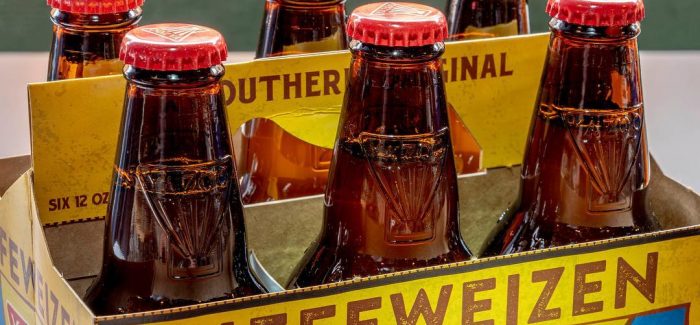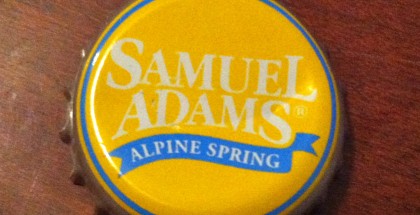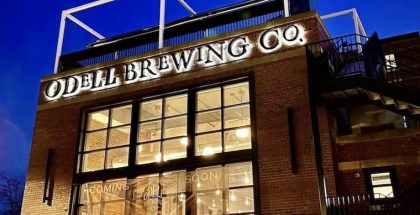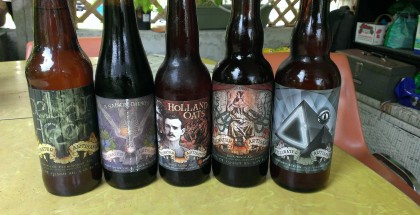Recapping Glass Packaging Innovation in Craft Beer
This is a sponsored post by the Glass Packaging Institute
Over the past four days, we’ve had the opportunity to connect with brewers, industry professionals, and beer enthusiasts from around the world during the 2018 Craft Brewers Conference (CBC) in Nashville. It was here, through our partnership with the Glass Packaging Institute (GPI) that we also had the opportunity to learn about the advantages of using glass packaging in the craft beer space. Here are a few reasons why:
Quality
Glass packaging continues to better maintain higher beer quality within bottled products. While I was at CBC, many brewers noted the difference in their final product when using glass packaging versus an alternative. Not only are glass bottles impermeable, non-porous and BPA free, but they also keep the beer colder for longer, and do not introduce any unwanted chemicals to the beer, which maintains the integrity of the product. Additionally, the glass industry continues to innovate in the field of quality, as seen by Ardagh Group’s recent special edition bottles created for Yazoo Brewing. This new line of 12-ounce Heritage bottles helps to reduce the level of dissolved oxygen that exists in packaged goods, to help better maintain the quality of the beer.

Sustainability
As the younger generation of beer consumers continue to identify with businesses that are eco-friendly, breweries that undertake green initiatives to drive their business will naturally see greater brand alignment within their communities. Luckily, glass packaging through bottles still remains the only 100% recyclable option, and the innovation being developed in refillable glass bottles is also helping to reduce the carbon footprint that packaging has on the environment. Nowadays, studies show that refillable glass bottles can be reused on average of 25 times before being retired, and deliver 50% less CO2 emissions per hectoliter (less carbon). Today more than 7 billion refillable bottles are in circulation through O-I (Owens-Illinois), a company that also recently teamed up with the Oregon Beverage Recycling Cooperative (OBRC) to grow the use of refillables in Oregon.
Application
When gathering with friends to enjoy beer for special occasions, glass still remains the only relevant form of packaging to fully translate a sense of time, place, and story. When thinking about growth in specialty styles such as sour, wild, and barrel-aged beers, the best format to create a sense of awe and mystique still remains in bottled glass packaging. As one consumer put it this week, “You’re not going to crack open a can at a fine dining restaurant, it just feels out of place.”
We also spoke with Mitch Ermatinger, founder of Speciation Artisan Ales, who this week won a silver medal in the Brett beer category at the 2018 World Beer Cup for their Peach Genetic Drift, about how glass bottles have been integral in fully translating their beers.
”Corked and caged bottles allow us to provide a sophisticated and fun experience for our customers,” said Ermatinger. “The presentation is classy and it works really well for sour and wild beer.”
In addition, we still see glass bottles as the most accessible form of packaging for new brewers. When considering packaging options for breweries who don’t have a ton of capital, a hand bottler and pallet of bottles will always be the more affordable option when compared to the investment required to purchase a canning line or utilizing mobile canning for small runs.
Throughout the life cycle of a consumer’s drinking experience, glass bottles continue to serve as the preeminent choice for packaged beer. Glass helps support accessibility, create a market for startup brewers, ensure quality from brewery to tasting, keep the beer colder for longer durations during consumption, and make an eco-friendly impact on a drinker’s carbon footprint once the bottle is discarded after use. After this week, not only are we more informed on the importance of glass in growing the beer industry, but understand how vital it is to differentiate brewers and make a positive impact on their business. We look forward to next year and seeing how this industry innovation expands throughout the craft beer market.
For more information on glass packaging, visit upgradetoglass.com.









Submit a Comment